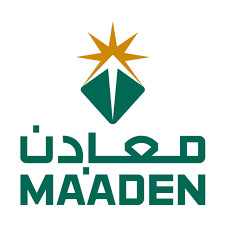
On Sunday, Saudi Arabian Mining Company, often known as Ma'aden, reported a more than 90% decline in second-quarter earnings due to lower sales prices and greater expenses, while also signalling a tepid forecast for its goods.
According to a stock exchange filing by the company, Ma'aden reported a net profit of 350.9 million riyals ($93.53 million) in the second quarter, a decrease of 91.3% from just over 4 billion riyals the year prior.
According to data from Refinitiv, it fell short of analysts' average forecast for the second quarter's net profit of 577.6 million riyals.
Furthermore, it fell 16.3% short of Ma'aden's 419.4 million riyal first-quarter net profit.
The decrease in profit was brought on by lower average realised sales prices for all products, with the exception of gold, higher general and administrative costs, "including expected credit loss allowance by 40%," an increase of 116% in expenses for exploration and technical services, an increase of 86% in finance costs due to higher interest rates, and a 59% decline in profit from a Ma'aden joint venture.
The Islamic tax "zakat, income tax and severance fees expenses (rising) by 2%," Ma'aden stated in the filing, "also contributed to the decline."
Despite increased sales volumes for all products with the exception of ammonia, primary aluminium, and flat rolled products, profit fell despite higher production costs, 17% lower selling, marketing, and logistics costs, higher income from deposits, and a 164% increase in other non-operating income. The 6% drop in cost of sales due to lower raw material costs was partially offset by higher production costs.
"We are beginning to see an improvement in raw material pricing and, despite the challenging market environment, remain well placed to meet the growing long-term demand for our products," Ma'aden Chief Executive Robert Wilt said in a statement.
In the second quarter, the realised price of ammonia decreased from $643 in the first quarter to an average of $253 per metric tonne. In the third quarter, Ma'aden anticipated stable ammonia pricing "as supply tightness continues to provide marginal upside."
It predicts that the third quarter will see the phosphate market stabilise due to strong demand in the Americas, while the future for aluminium is unclear because of weak demand in some areas. According to Ma'aden, the price of raw materials will continue to decline and gold will trade within its present range for the remainder of the year, "supporting profitability."
(Source:www.reuters.com)
According to a stock exchange filing by the company, Ma'aden reported a net profit of 350.9 million riyals ($93.53 million) in the second quarter, a decrease of 91.3% from just over 4 billion riyals the year prior.
According to data from Refinitiv, it fell short of analysts' average forecast for the second quarter's net profit of 577.6 million riyals.
Furthermore, it fell 16.3% short of Ma'aden's 419.4 million riyal first-quarter net profit.
The decrease in profit was brought on by lower average realised sales prices for all products, with the exception of gold, higher general and administrative costs, "including expected credit loss allowance by 40%," an increase of 116% in expenses for exploration and technical services, an increase of 86% in finance costs due to higher interest rates, and a 59% decline in profit from a Ma'aden joint venture.
The Islamic tax "zakat, income tax and severance fees expenses (rising) by 2%," Ma'aden stated in the filing, "also contributed to the decline."
Despite increased sales volumes for all products with the exception of ammonia, primary aluminium, and flat rolled products, profit fell despite higher production costs, 17% lower selling, marketing, and logistics costs, higher income from deposits, and a 164% increase in other non-operating income. The 6% drop in cost of sales due to lower raw material costs was partially offset by higher production costs.
"We are beginning to see an improvement in raw material pricing and, despite the challenging market environment, remain well placed to meet the growing long-term demand for our products," Ma'aden Chief Executive Robert Wilt said in a statement.
In the second quarter, the realised price of ammonia decreased from $643 in the first quarter to an average of $253 per metric tonne. In the third quarter, Ma'aden anticipated stable ammonia pricing "as supply tightness continues to provide marginal upside."
It predicts that the third quarter will see the phosphate market stabilise due to strong demand in the Americas, while the future for aluminium is unclear because of weak demand in some areas. According to Ma'aden, the price of raw materials will continue to decline and gold will trade within its present range for the remainder of the year, "supporting profitability."
(Source:www.reuters.com)














